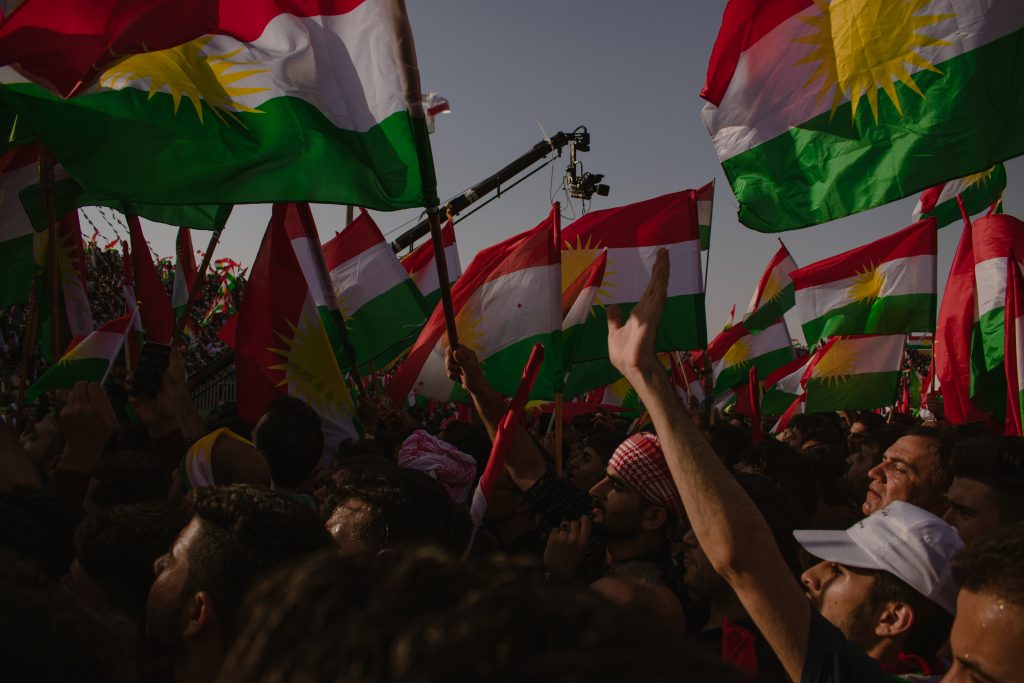
Amongst all these humanitarian agencies who seek to protect and aid those suffering or victims of mistreatments, it is unbelievable to think that there are still constitutional restrictions entrenched to eradicate a cultural identity. Especially when it comes to a sensitive issue such as the Kurdish Question; a minority ethnicity that has fought endlessly to protect their rights, with many activists, politicians and lawyers currently imprisoned as a result.
The spiralling political crisis that the question elicits today stems from nothing more than a backlash from the past. Following the break-up of the Ottoman empire in 1922, the many different ethnic groups living in the newly formed Republic of Turkey were forced to comply with ‘Turkification’ policies: a homogenising stance that attempted to erase the Kurdish language and replace it with a modern secular vision endorsed by the Founder of the Republic of Turkey: Mustafa Kemal Ataturk. In other words, the use of languages other than Turkish was now prohibited by law, even though Kurds composed around 50% of the Turkish population. Yet, the governments assimilation policies didn’t stop here; the radicalisation was followed by a series of massacres murdering more than 40,000 people and displacing the remaining Kurds occupying the south-eastern region of Turkey. All Kurdish uprisings were essentially suppressed by the Turkish state, in hopes of eliminating the fear of Kurdish nationalism and religious opposition to Kemalist reforms.
Today, the situation concerning the Kurdish ethnicity has improved compared to the counterinsurgency taboos in the past. Particularly in 2013; a year where the ruling Justice and Development party (AKP) put the Kurdish reality at the centre of its constitutional program and reinforced a set of Kurdish reforms: lowering the 10% electoral threshold to allow the Peoples’ Democratic party (HDP) and other small parties to enter parliament, lifting legal restrictions prohibiting towns from using Kurdish names and broadening Kurdish education amongst the nation. According to the BBC, by granting the Kurds legal protection, President Erdogan (leader of AKP) claimed he created ‘a historic moment’ for the Kurdish society.
While these structures, in theory, opened a space for Turkish officials to raise and discuss the previously subaltern Kurdish question, Erdogan’s motive remained ineffective in practical terms. In just a few years, these structures degenerated into a rigid ethno-nationalist approach.
With HDP breaking through the 10% election threshold in the 2015 general election, a margin that had previously kept small parties out of parliament, AKP was no longer the ruling majority party. Overlooking the potential of a shared future amongst Kurdish and Turkish representatives in Parliament, therefore, did not only jeopardise Erdogan’s authority but it also challenged the ultra-nationalistic fundamentals of the Turkish state. As a reactionary response to his Party’s failure, and the social stigma attached to Kurdish amalgamation strategies, Erdogan took an authoritarian turn. By completely disregarding the promises he made for the Kurdish society, he embarked on an ulterior political purpose which involved weaponising the Judiciary. This resulted in the detention of tens of thousands of civil servants, teachers, academics along with the former co-chair of the Pro-Kurdish People’s Democratic Party, Selahattin Demirtas. Even though the European Court of Human Rights reviewed his imprisonment as ‘limiting freedom of political debate’, and consequently demanded for his immediate release, Demirtas still remains in prison. It is noteworthy that whilst the main problem is the ongoing suffocation of Kurdish expression, what is equally concerning is Europe’s failure to condemn Turkey’s political failings.
As you can imagine, ever since these drastic measures, the proliferation of Kurdish resilience has been stunted by the AKP’s ethno-nationalist discriminatory policies. Any act of retaliation is suppressed by the Turkish government, thus causing a predominantly anti-Kurdish sentiment across the nation as a whole.
In fact, when we study the rise in violence over the last couple of months, there seems to be an increase in the number of reported racist attacks on Kurds. One heart-breaking incident claimed a family of seven living in the Konya province in July. Although the Dedeoglu family had previously reported the perpetrators for their barbaric behaviour, which involved threatening them with death and claiming that they ‘would not let the Kurds live here’, the Judiciary’s responsibility to protect the citizens was non-existent; the perpetrators were able to walk freely with no charges after the first attack. This only strengthens the government’s tactical aim to alienate the Kurds; these racist attacks are being encouraged. To emphasise the magnitude of violence, when HDP MPs began peacefully protesting after the horrific incident, they were met with the excessive physical force and violence of police forces.
The relationship between state and society is anything but straightforward, however the culmination of events reaffirms a larger organism of state-dictated rigidity concerning cultural differences. This radical program of nation-building is paternalising and absurd.
It is evident that a blanket denial of ethnic identity has shaped the turbulent history of the racial group; however, it is not too late to pave a way to a more inclusive future. Interventions from global organisations and an overall increase in the level of journalistic scrutiny would no doubt serve as a catalyst for the thoughts that in turn will create political change.
Image credits: Photo by Levi Meir Clancy on Unsplash
